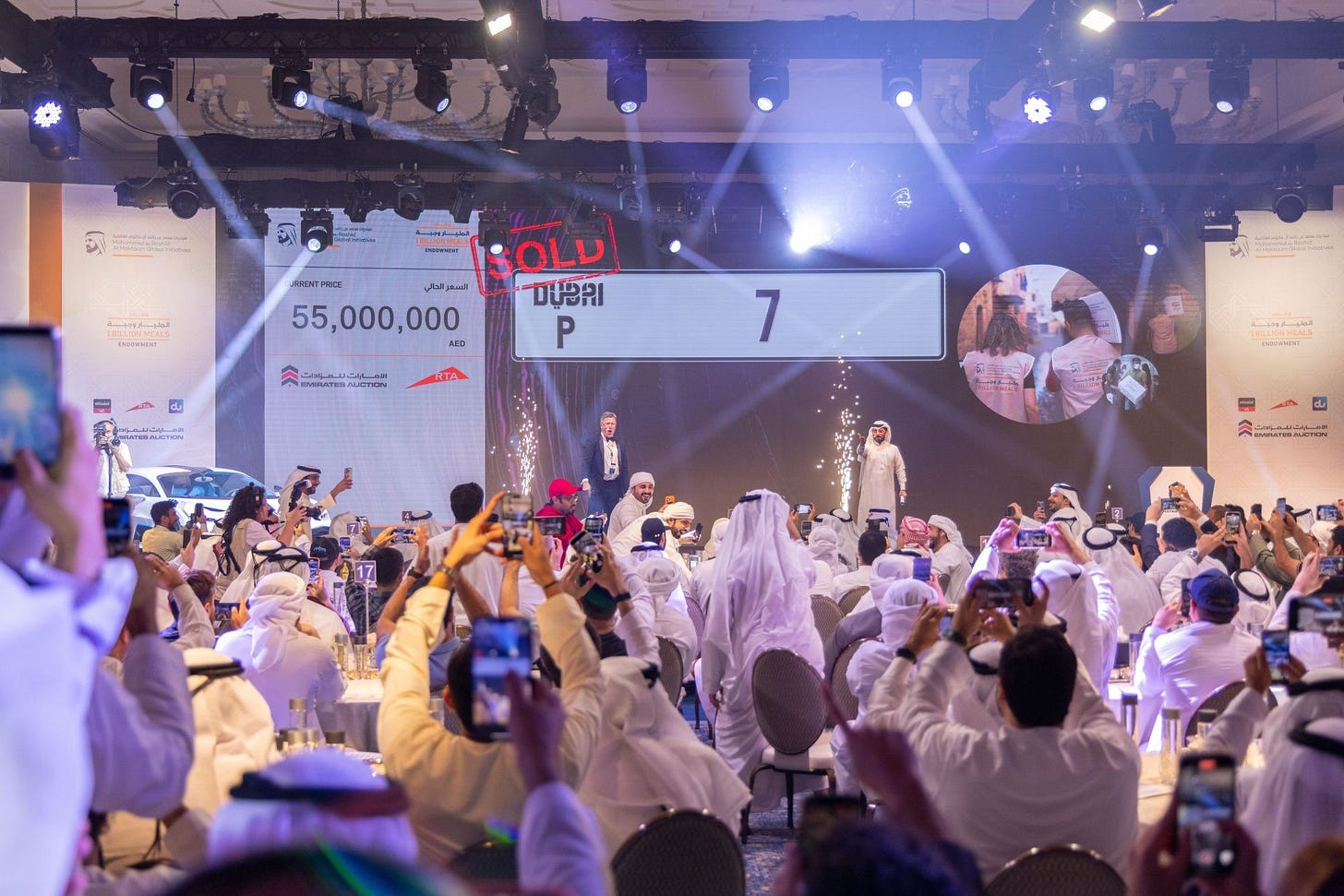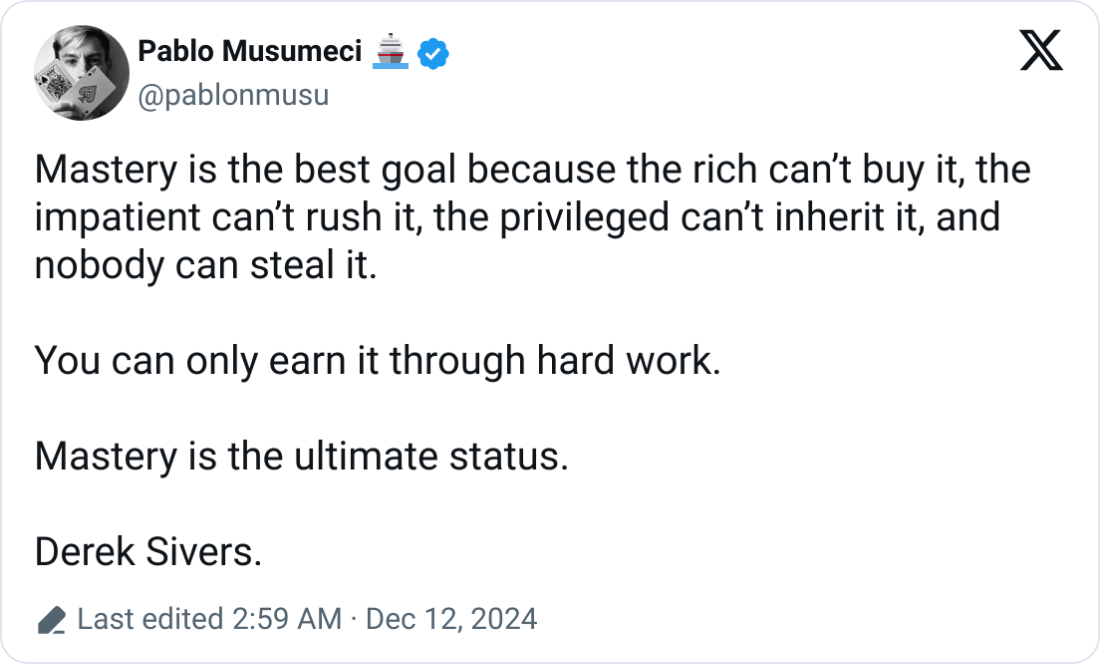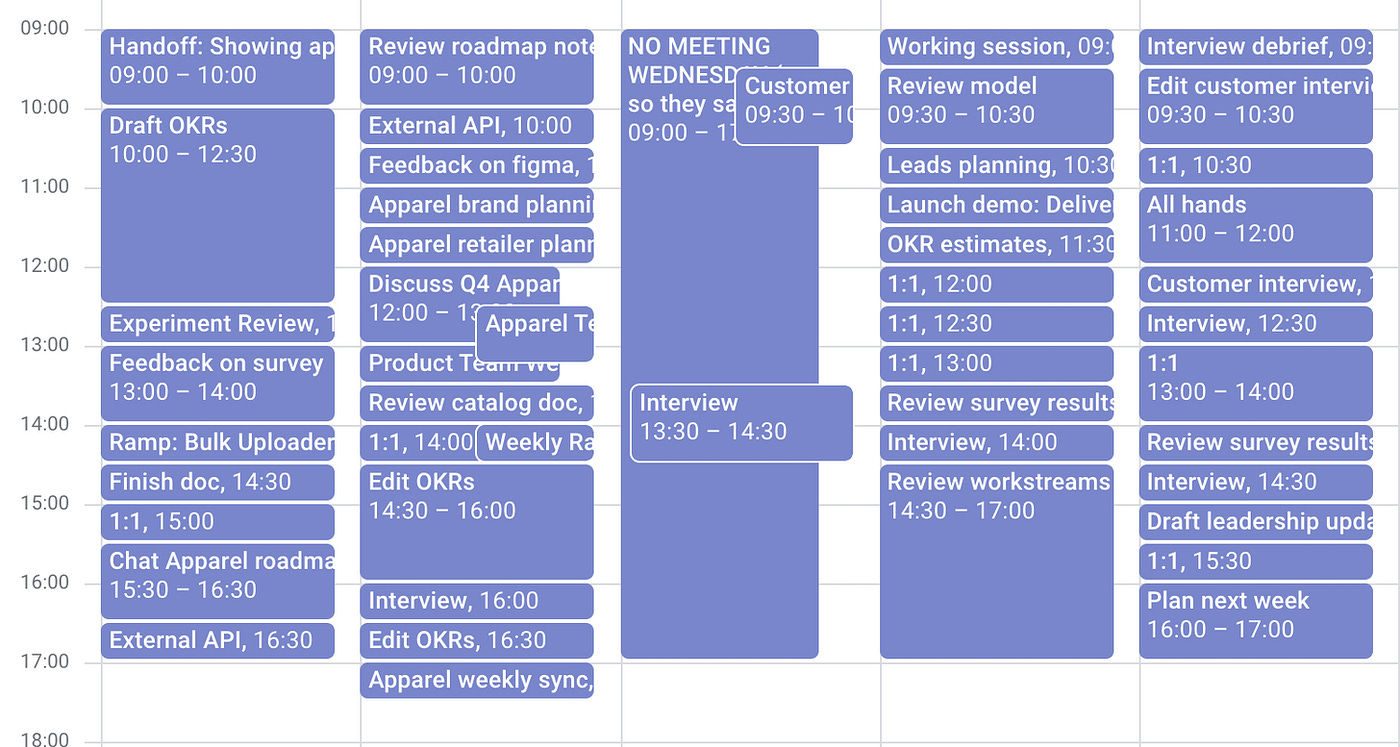Do you see me? The 6 Flexes of Modern Society
The Hidden Language Of Status, Wealth and Power.
My dad’s friend big black BMW X7 glided toward the empty spot.
A beat-up Honda Civic swooped in.
"The world belongs to the fast," smirked the young Civic driver, not realizing he'd just made a terrible mistake.
Without a word, my dad’s friend calmly reversed his BMW and rammed it into the Civic. Then, as if he’d just set the record straight, he rolled down his window, leaned out, and said, “The world belongs to the rich.”
That moment wasn’t just about a parking spot; it was a reminder of the unwritten rules of status and power.
Status symbols aren’t just about ego. They show rank, success, and influence. They’re the silent signals that tell us when to back off or push ahead.
Our friend in the Civic learned the hard way.
And whether we notice it or not, we're all speaking this language.
The Wealth Flex
Money alone doesn’t guarantee status. In Dubai, a Lambo is just another car on the road, blending into traffic without turning heads. In some circles, simply having wealth isn’t enough to stand out.
For the truly wealthy, it’s not just about what you own but about how long you’ve had it. You can’t buy history, a family name, or a legacy passed down through generations. Old Money doesn’t need to flaunt its wealth; it speaks through quiet confidence, the kind that says, “I’ve always had this.”
New Money craves validation. Flashy purchases, like Bezos’s €430 million superyacht, shout, “Look, I’ve made it!”
But the louder the flex, the less money stays in your pocket. Owning a Ferrari makes you, by definition, a Ferrari poorer. As Morgan Housel puts it, “Wealth is the thing you don’t see.” Old Money understands this. They don’t flaunt what they have; they simply know it’s there. And paradoxically, we admire what they never bother to show.
But Old Money wasn’t always Old Money. The spoiled heirs studying art history at Berkeley have long forgotten that their family wasn’t always rich. John D. Rockefeller himself loved work so much he celebrated “Job Day” every September 26, marking the start of his career.
Elon Musk and Jeff Bezos are our modern-day Rockefellers who took bold risks to build their fortunes. But once the wealth is made, the game shifts. For Old Money, the focus moves from risk-taking to preservation. As my dad says, give your children enough to do something, but not enough to do nothing.
Old Money might sneer at New Money’s flashiness, calling it unsophisticated, but they know they need fresh cash to sustain their world. This interplay creates a delicate dance between Old and New Money.
Marriages and alliances bridge the gap: “I’ll bring the family name; you bring the resources.”. In 1895, Consuelo Vanderbilt’s dowry restored Blenheim Palace while her family gained a prestigious British title.
What happens when Old Money’s quiet confidence meets today’s obsession with status? You get useless luxuries. Objects so impractical they exist only to show how much you have to burn.
The Uselessness Flex
$15,000,000.
That’s what someone in Dubai paid for a license plate with just the number 7. In a world where Lamborghinis are as common as Toyotas, the ultra-wealthy needed a new flex. Single-digit plates became the answer. The fewer the digits, the higher the status.
License plates are unique identifiers, purely functional by design. But in Dubai, they’ve become a blank canvas for signaling absurd levels of wealth. Paying millions for a license plate serves no practical purpose; its only value is the story it tells: “I have so much money, I can spend it on nothing.”
This principle of status through uselessness isn’t new. Diamonds, for instance, are another example of a luxury with inflated value. A lab-grown diamond is chemically identical to a natural one, yet costs up to 85% less.
Why pay more?
A “real” diamond tells a different story. Its price shows commitment, exclusivity, and status—things that can’t be manufactured in a lab.
And then there are Rolls-Royces, with umbrella holders built into the door. Sure, they’re a fun detail, but they exist for one reason only: to underline the fact that this isn’t just a car. It’s a moving monument to wealth.
The Inner Circle Flex
For some, status is less about what you have and more about who you know. The higher you climb the ladder, the fewer people are there at the top.
A Rolex signals wealth to the masses, but insiders know it’s just the beginning. True connoisseurs value brands like A. Lange & Söhne or Vacheron Constantin. These aren’t just watches; they’re entry tickets to an elite world only the initiated understand.
Exclusivity isn’t limited to material things. Niche knowledge can also act as a signal of belonging to the right circles.
Foodies aren’t chasing expensive restaurants anymore. The real flex is finding the best hole-in-the-wall ramen spot, “just like in Tokyo.” The taste of Japan in a mismatched bowl, no white tablecloths, no sommelier. It’s not expensive, but it’s rare. It’s local. It’s right. Recognizing the authentic taste of ramen shows you belong to a world of well-traveled, discerning insiders.
Exclusivity extends beyond tastes and into values. Morality becomes the ultimate ticket, shifting status from what you have to what you stand for.
The Moral High Ground Flex
We all play the status game—even when we claim not to.
Take the unplugged, proudly absent from social media. They’ll say, “I don’t need to broadcast my life to feel validated.” Ironically, their absence is a broadcast of its own: “I’m above the need to be seen.” Opting out isn’t just a choice; it’s the message.
Then there are the minimalists who claim to have “transcended” the material world. Their lifestyle is not about simplicity. It is about turning austerity into the ultimate luxury. Status is no longer about what you own. It becomes about what you don’t. They compete in the “enlightenment Olympics,” priding themselves on needing as little as a Buddhist monk.
And let’s not forget the sustainability champions. Their choices aren’t just good; they’re the right ones. Better for the planet, better for society, and, of course, better for their image.
The Swedes have taken this so seriously, they even have specific words for it:
Flygskam (“flight shame”): The guilt and shame over your carbon footprint when you board a plane.
Smygflyga (“secret flying”): Sneaking in flights to avoid judgment from friends and family.
Tågskryt (“train brag”): Flexing your commitment by choosing long, pricey train journeys.
Whether it’s what we own or what we reject, we’re all playing the game. We may claim to transcend it, but in our own way, we’re just using a different currency.
Doing the right thing takes discipline. Some people channel that willpower into saving the planet, wearing their virtue like a badge of honor. Others, like me, pour it into looking good naked.
The Fitness Flex
Once upon a time, being pale and plump was the ultimate status symbol. It meant you didn’t have to work in the fields, and you had enough money to eat well—perhaps too well. Today, the script has flipped. A tanned, toned body now speaks to time, effort, and care—all luxuries in our screen-dominated, convenience-driven world.
An elite physique isn’t just about looking good. It signals self-control, resilience, and, yes, money. Gym memberships, personal trainers, organic meal plans—these things aren’t cheap.
But the real flex? Abs. You can’t buy them; you have to earn them.
In a world where junk food is everywhere and Netflix tempts you to stay on the couch, a fit body is more than a symbol. It’s proof you can do what most people won’t. Flexing your big guns has become more than a literal flex.
People look at you differently when you are in shape. You don’t need designer clothes when your delts and pecs are the accessories. Fitness is confidence you wear on your body.
And yes, I’ll admit it: I judge shopping carts. Nothing feels better than standing in line with broccoli and chicken breasts while glancing at someone’s frozen pizza and sugary cereal. Fitness doesn’t just show discipline—it makes you feel superior.
But to some, the hours spent perfecting your body signal something else entirely. If you’re only pulling weight at the gym and not pulling your weight in society, are you really contributing? In a world that glorifies hustle culture, the real flex isn’t fitness—it’s busyness.
The Busyness Flex
“Sorry, I’m fully booked until March.” is not just a schedule update—it’s a brag.
Busyness has become a proxy for importance, a way to signal that your time is in high demand. People casually mention their back-to-back Zoom calls or proudly say they’re working through lunch every day. The message? I matter.
I had a manager who was that guy. Every time we had a 1-on-1, we’d end up killing time chatting about nothing. He loved filling his calendar and pretending it meant something. It wasn’t busyness; it was ego.
In the knowledge industry—where no one’s counting produced items on an assembly line—busyness has become the flex. Long hours and packed schedules signal dedication, but more often than not, they’re just a smokescreen.
Hustle culture has pushed people to their limits, turning the flex from “look how much I’m doing” into “look how much I can endure.” But grinding all day, every day? Not everyone’s playing that game anymore.
Generation Z is opting out. They reject the workaholic rat race that trapped Millennials, valuing leisure and control over endless hustle.
The new flex? Self-determination. Owning your time instead of being someone else’s puppet.
Remaining FLEX-ible
Remember the BMW driver in the parking lot? His move wasn’t about the spot or the money. It was about power—the language of status.
But that was yesterday’s language. Today’s status moves aren’t about ramming cars or flashing wealth. They’re subtler, harder to fake, impossible to buy.
Status is a living language, evolving as new symbols emerge and old ones fade. License plates give way to leisure time. Flashy wealth is replaced by quiet signals like sustainability.
The point isn’t about keeping up with the Joneses. It’s about knowing what the Joneses value and understanding their language.
Next time someone name-drops a ramen joint or humble-brags about their packed calendar, remember: they’re speaking a language. Fluency is not just about knowing the words. It is about understanding the culture behind them.
As for our Honda Civic driver, legend says he now drives a beat-up Toyota with a single-digit plate he saved up for. Sometimes, the best way to win is to rewrite the rules entirely.











